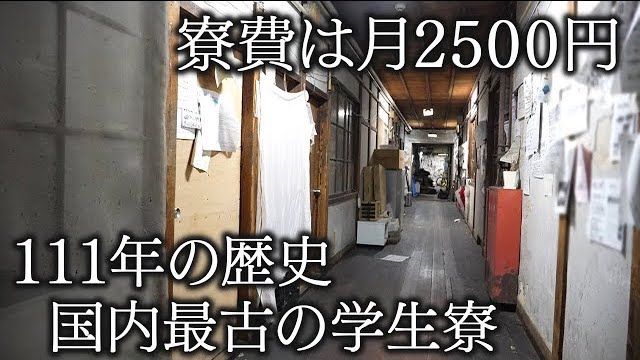Re-entry ban causes foreign firms and talent to question long-term plans in Japan
That is exactly the situation that many non-Japanese residents of this country have found themselves in due to the current pandemic. As governments around the world imposed travel restrictions in an attempt to contain the spread of COVID-19, Japan was been unique among the G7 nations in treating its foreign residents differently from its citizens, who are allowed to enter the country as long as they submit to a PCR test at their port of entry and agree to isolate themselves for two weeks afterward.
The policy has left some foreign residents who were outside of Japan when the borders closed stuck wherever they are, even though their obligations in Japan — rent, bills, work, family — continue as normal.
In the past week, the government has said that it intends to expand the scope of which foreign residents will be allowed to re-enter the country. However, it is still unclear exactly who will be able to return to Japan, and when. The uncertainty of the situation, as well as the length of time this uncertainty has continued, have begun to damage Japan’s image as a place where people can do business and has caused non-Japanese entrepreneurs and highly skilled workers to re-evaluate their long term plans to invest in this country.
Businesses are hamstrung
Business leaders in the international community stress their appreciation for the steps that the government has taken to protect the country, and Japan’s relative success in controlling the virus is in part due to that effort.
At the same time, as Japan looks to strike a balance between preventing infections and keeping the economy running, “a reasonable level of travel by businesspeople becomes a critical issue,†according to Christopher LaFleur, chairman for the American Chamber of Commerce in Japan. He points out that many foreign businesses here rely heavily on the global nature of their footprint, and not being able to bring people to Japan who have specific expertise can significantly hamper operations.
Similarly, Valerie Moschetti, executive director and chief operating officer at the European Business Council in Japan, points out that foreign businesspeople based here need to be able to leave the country to sign contracts and attend board meetings, things that are best done in person.
The impact of the restrictions is substantial. A recent survey conducted by the German Chamber of Commerce of its members showed that 78 percent of them regard the entry ban as a significant burden to their businesses. In addition, 79 percent of the affected companies say their turnover is endangered because ongoing projects cannot be completed and new projects cannot be initiated.
If such disruptions continue, Moschetti says it could affect the wherewithal of international firms to maintain employment at their Japanese subsidiaries. In turn, this could have negative implications for the Japanese economy.
LaFleur emphasizes the fact that foreign nationals are being treated differently from Japanese citizens in terms of re-entry rights is a key concern for businesses.
“There should not be any discrimination based on nationality, from the standpoint of basic fairness and equity,” he says. “There is no obvious reason why travel in and out of Japan by foreign nationals who have been living and working long-term in Japan poses any more risk to the community than travel by a Japanese person.”
“It’s quite disturbing,” Moschetti adds. “It’s a question of equal treatment.â€
Foreign talent has qualms
The entry ban situation has also raised questions among many long-term residents of Japan, including those that are highly educated and highly skilled — the kind of immigrant that the government has said it wants to attract.
Amelie Le Boeuf, a seven-year resident originally from France who works as a study program coordinator, says that the situation is causing her and her Japanese husband to rethink their lives here.
“I resent having all the obligations of a Japanese citizen when it comes to paying tax etc., but not the same protection,” she says. “Seeing how my fellow foreign residents are being treated makes me feel like we’ll always just be ‘pawns,̵#8217; second-class residents, that can be discarded whenever Japan enters into a crisis period.â€
Joe Van Alstyne, who has lived in Japan since 2018 and works in Tokyo as a human resource consultant, agrees.
“While I haven’t been impacted directly, because so far I haven’t had a need to leave and come back to Japan, I’ve started reconsidering my residency in Japan,” he says. “Many of us are committed to living here and do everything we can to positively contribute to Japanese society. But this situation feels like we’re being treated no differently than basic tourists, despite the work we’ve put in to live here.â€
For many, the uncertainty created by the entry ban is layered with other issues in which foreign residents experience discrimination, including difficulty obtaining credit cards and housing, racial profiling by police and lack of legal recognition for same-sex partnerships. Some have said this issue feels like the last straw, and believe it is likely to have an impact on Japan’s ability to attract foreign talent in the future.
“There are people, especially in tech, who really like Japan and, if there were good opportunities, would love to work here, says Coral Capital CEO and founding partner James Riney. “So much talent could be accessed if Japan were more welcoming,†but the re-entry ban is a bit of a red flag.
Riney adds that as Japan is trying to vie for the regional headquarters that are expected to leave Hong Kong as that city weathers crises separate from that of the pandemic, more competitive regional hubs might win out.
“If foreign residents are treated unfairly in times of crisis, it’s kind of a deal breaker,†Riney says.
Another group that Japan has sought to attract in recent years are non-Japanese entrepreneurs looking to set up new companies. However, the atmosphere of uncertainty created by the current entry ban acts as a counterweight to such efforts. Serial entrepreneur Ollie Horn, who until recently lived in Fukuoka, says that “incentives offered to non-Japanese entrepreneurs such as commercial rent subsidies, VC intros, fast-tracked visas and whatnot are meaningless if you are one day unable to run your company due to the whim of an immigration official.â€
Additionally, non-Japanese entrepreneurs currently in the country are rethinking their own situations. One American entrepreneur who asked not to be named says, “These moves from Japan really drive home the point that Japan won’t be a long-term home for me and the family. It shifts the scale of my investment in Japan. Now, I don’t know about scaling a team in Japan so much and will be looking at other locations to establish an international headquarters.â€










